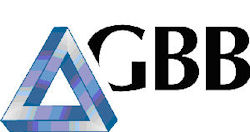Team:Groningen/Labwork/11 September 2013
From 2013.igem.org
(Difference between revisions)
| Line 30: | Line 30: | ||
<Br> | <Br> | ||
<br> | <br> | ||
| - | checked colonies stabbed on LB/starch/cm plates, with lugols solution. No halo's were visible implying that the B. subtilis colonies have an insert in the <i>amyE< | + | checked colonies stabbed on LB/starch/cm plates, with lugols solution. No halo's were visible implying that the B. subtilis colonies have an insert in the <i>amyE</i> locus. |
| - | <h2> | + | <h2>Claudio</h2> |
S5 was ligated into pSB1C3-S1-S5 and pSB1C3-S2-S5. | S5 was ligated into pSB1C3-S1-S5 and pSB1C3-S2-S5. | ||
<br>The ligation product was transformed into <i>E. coli</i> DH5α and plated on LB + Cm. | <br>The ligation product was transformed into <i>E. coli</i> DH5α and plated on LB + Cm. | ||
Revision as of 10:27, 11 September 2013
Sebas
Checked sequenced plasmids. BBa_K1085014+GFPdsm and BBa_K1085014+GFP0840 had both the promoter orientated in the right direction.There were no mutations.
BBa_K1085014+P-RFP, only one primer bound in the wrong direction, implying that the promoter is inserted in the wrong direction. The other primer didn't bound at all.
checked colonies stabbed on LB/starch/cm plates, with lugols solution. No halo's were visible implying that the B. subtilis colonies have an insert in the amyE locus.
Claudio
S5 was ligated into pSB1C3-S1-S5 and pSB1C3-S2-S5.The ligation product was transformed into E. coli DH5α and plated on LB + Cm.
The plates from yesterday (pSB1C3-S16-S3 and pSB1C3-S16-S9) showed around one hundred colonies.
ColonyPCR was performed on 4 colonies per plate using VF2 and VR primers (annealing temperature 58°C).
The PCR samples were checked on agarose gel 0.8%.
 "
"







